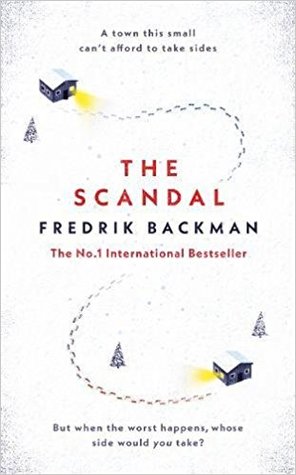Tuesday is a big day in the book world. It’s the day the Man Booker Prize for 2014 will be announced. Which means I’ll probably hear the news sometime on Wednesday morning (New Zealand time). As it happens, early yesterday morning I finished American writer, Karen Joy Fowler’s shortlisted novel, We Are all Completely Beside Ourselves. And I’m putting it out there right now: I reckon it’s The One.
Be aware: my opinion is uninformed. I haven’t read the others on the shortlist. And I don’t have an English Literature degree. The social sciences were my thing at university. I do have a graduate diploma in creative writing but it’s not the same. Nevertheless, I know a good book when I read one. And We Are All Completely Beside Ourselves is that. Fowler is well known for her book The Jane Austen Book Club, a book that inspired me to give Pride and Prejudice another go. It was a set text at High School – a death knell as far as I was concerned at the time. I didn’t really give it a chance. Second time around I was much more impressed. It’s one of very few books I would consider reading a third time. But for now, what is it about We Are all Completely Beside Ourselves that I like so much?
- The structure. As Rosemary, the narrator, declares: she begins in the middle. I was hooked by the contrast to the prologue, the intimation that major changes had taken place. I wanted to know the details: the what, the when, the how and the why. I was intrigued on page six when Rosemary said: “to this day, the Socratic method makes me want to bite someone.” A twenty-two year old owning up to the urge to bite? And over the Socratic method? What on earth had gone on? I wanted to know became I had to know.
- The characters. Especially Rosemary. At first, I thought her behaviour could be simply the hijinks of a slightly out of control, and somewhat naive, student experiencing a run of bad luck with the law. She lands in jail for things similar to those I may or may not have been involved with when I was a student. (Note to my kids: if you’re reading this shut your eyes!) I wound up with only a traffic offence for cycling on the footpath. I still have the ticket. Rosemary had slightly more serious form. Eventually we discover her brother is wanted by the FBI, and yet it’s their parents who have the most to answer for. Or is it? You’ll have to work out that one for yourself.
- The mystery. Rosemary’s sister, Fern, is missing. She’s been gone since Rosemary was five. The how and why and on-going effects provide the page-turning tension that runs right to the end of this book.
- The family relationships. This family is beside itself. Then again, perhaps we all are. The circumstances may have been bizarre but this family’s response to their particular situation is both frighteningly and comfortingly familiar.
- The narrative device. It was as if Rosemary was telling her story to me. As if we were huddled in a bar somewhere and she was pouring her heart out. Fowler’s device of having Rosemary address the reader directly from time to time, added to the verisimilitude. If I had any doubts about this book they were gone when Rosemary says straight to me, on Page 54: “Ask Piaget”. Piaget! When was the last time he appeared in a novel I was reading? Answer: Never! The mere mention of his name should have alerted me to what was coming next. It didn’t. And that’s the beauty of the book for me.
- The psychology. Psychology is rather more than a passing interest to me. To my immense satisfaction Fowler includes psychological theories and experiments, Piaget and Harlow, in particular, that I remember being taught in the seventies and eighties. (Which contributed further to the sense that in some way I was visiting my student past.) And she debates them. Impressively.
- The politics. We Are All Completely Beside Ourselves turns out to be a very personal book that’s political. In a way it wears its politics on its sleeve, rather like a Kingsolver novel. But Fowler locates the political in the personal. I didn’t feel lectured. Rosemary simply comments on the wider context in passing. And her comments pack a punch:: “I wish I’d turned him in myself back in 1996 when … the country [was] more like a democracy … In 1996, even those citizens charged with terrorism had constitutional rights.”
- Respect. Fowler credits her reader with intelligence. From the beginning to the very end. There is no explanation. No overt instruction to the reader on how or what to think. There is simply the story. Right to the end. Even the denouement raises as many questions as it solves.
Kingsolver, in her review for the New York Times puts it best when she says Fowler is a trustworthy guide.That review contains spoilers I’ve avoided here so if you haven’t read the book yet, think twice before clicking on the link. I hope Karen Joy Fowler and We Are All Completely Beside Ourselves takes the prize on Tuesday. I think the book deserves it. If it does win, it’ll be history making. This is the first year the award has included American writers – to be eligible the book has to be published in Britain. It’s a decision that has had its share of controversy. The BBC complained that Commonwealth writers were edged out of the shortlist. I wonder what their reaction will be if We Are All Completely Besides Ourselves takes the prize? Have you read any of the books shortlisted? Who do you think will take the prize? And tell me, what do you think about the changes in eligibility?
Categories: On Books





Thanks, Jill. I’ve put We Are All…on my list. The name Karen Joy Fowler is familiar – I’ll have to look up her writing and see what I’ve read…the books the books the books….every once in awhile I dutifully work at sorting and recycling the bookcases but it’s a losing proposition!
LikeLike
Karen Joy Fowler wrote the Jane Austen Book Club – which I’ve read and enjoyed. But I much prefer “We Are …” As to the matter bookshelves. Mine, too, are over flowing. Many books are stacked on the floor! The situation would be truly dire if it weren’t for my kindle.
LikeLike
Your review of the book is excellent Jill. It whets my appetite and intrigues me to have Rosemary tell me her story.
I checked Google “Richard Flanagan is tonight, Tuesday 14 October, announced as the winner of the 2014 Man Booker Prize for Fiction for The Narrow Road to the Deep North, …” Have you read this one?
LikeLike
Have just started, it’s very, very good, so far.
LikeLike
I think it must be exceptional to be awarded the Booker.
LikeLike
In this case, I think so. It’s about the Burma Railway, I visited Kanchanaburi and Hell Fire Pass last year – it was a very somber day. The book brings it all to life.
LikeLike
well Jill, first of all I think it is a gift to be able to review a book, but even moreso to do it without spooling things – so two thumbs up for that. Also, you can really learn a bit about a person by they write and I feel like I know ya a bit more – and I also love when authors credit the “reader with intelligence.”
anyhow, I kind of think that if it is British prize it should be for British authors – but if this book does win I guess it will be certainly worthy of the prize – please keep us posted ! ❤
LikeLike
Y, you are my 1000th like! Very glad you enjoyed the review.
LikeLike
I a honored and so glad to have that honor of the 1,000th like. And a while ago (last winter) I stopped pressing like if I left a comment, but then I started again because I think both are good- and I know some folks do not value the likes, but I appreciate them for a few reasons.
LikeLike
This is a good review! Thanks, Jill. Now I want to read this book. And I didn’t even know the Man Booker prize was coming tomorrow. Yeah, I kind of thought it was a British prize. I don’t understand why they decided to include this American writer. Also, when you studied creative writing, was it fiction, poetry, or something else?
LikeLike
Hi Lynne, I think they extended the prize to enhance its prestige. According to this link the organisers expect that now the winners will be recognised as the best in the English speaking world. http://www.thebookseller.com/news/man-booker-prize-reveals-criteria-changes.
I studied fiction writing.
LikeLike
well this reply helped me too – 🙂 now I see –
LikeLiked by 1 person
I also feel like it makes it more of a prestigious award by making it global — so I approve of that! ha! 🙂 ❤
LikeLike
I never know what’s currently listed, Jill, but very often will pick a former Booker prize winner from the library shelf, and am not often disappointed. I’m currently reading ‘When we were orphans’ by Kazuo Ishiguro- quite an old listing. 🙂
LikeLike
I thoroughly enjoyed that book, Jo. My very favourite of his is The Remains of The Day
LikeLiked by 1 person
Hi Jill,
No, I haven’t read this book – I’m not great at keeping up to date. I have studied English Literature though and think your commentary and discussion in response to the book particularly good. Now I do want to read it. Love your work.
Kyla-Jayne Rajah.
LikeLike
Thanks Kyla-Jayne, I think you’d enjoy it.
LikeLike
Looking forward to seeing if you have it pegged right! Sounds like a winner by your description. 🙂
LikeLike
Me too!
LikeLike